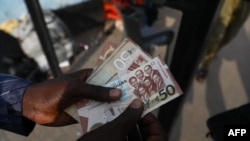Its finance ministry said it will not service debts including its Eurobonds, commercial loans and most bilateral loans, calling the decision an "interim emergency measure", while some bondholders criticized a lack of clarity in the decision.
The government "stands ready to engage in discussions with all of its external creditors to make Ghana's debt sustainable", the finance ministry said.
Holders of Ghana's international bonds confirmed in an emailed statement late on Monday the formal launch of a creditor committee aimed at facilitating the "orderly and comprehensive resolution" of the country's debt challenges.
Any good faith negotiations, the creditor committee said, would need to avoid unilateral actions and require the timely exchange of detailed economic and financial information between international bondholders, the government and the IMF.
The steering committee was made up of Abrdn, Amundi, BlackRock, Greylock and Ninety One, the group said in its statement.
Ghana had already announced a domestic debt exchange program and said that an external restructuring was being negotiated with creditors. The IMF has said a comprehensive debt restructuring is a condition of its support.
The suspension of debt payments reflects the parlous state of the economy, which had led the government last week to reach a $3-billion staff-level agreement with the International Monetary Fund (IMF).
The country has been struggling to refinance its debt since the start of the year after downgrades by multiple credit ratings agencies on concerns it would not be able to issue new Eurobonds.
That has sent Ghana's debt further into the distressed territory. Its public debt stood at 467.4 billion Ghanaian cedis ($55 billion as per Refinitiv Eikon data) in September, of which 42% was domestic.
The government said the suspension will not include the payments towards multilateral debt, new debts taken after Dec. 19 or debts related to certain short-term trade facilities.
Its gross international reserves stood at around $6.6 billion at the end of September, equating to less than three months of imports cover. That is down from around $9.7 billion at the end of last year.
While 70% to 100% of the government revenue currently goes toward servicing the debt, the country's inflation has shot up to as much as 50% in November.









